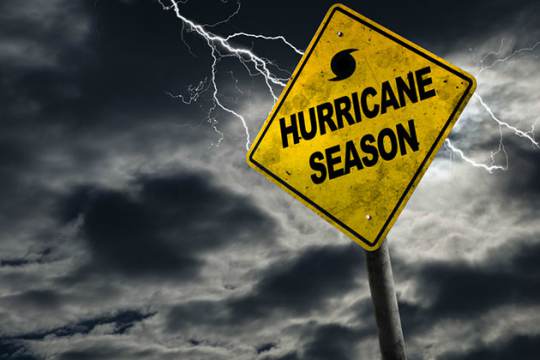As hurricane season begins to take over the country, storms like Harvey and Irma can leave families completely devastated both physically and financially.
While the storm clouds will clear and the sun will come out again, entire communities in the south will be left to pick up the pieces following these unprecedented weather events. With only one in five homes now estimated by Consolidation Plus to have flood insurance, recovery may be more difficult than ever before.
If you or someone that you know has been hit by hurricane season, these steps can help to rebuild life after the storm.
6 Financial Recovery Tips for the Victims of Hurricane Season

1. Make a plan with family
Following a natural disaster, the most important step to take for you and your family is to find stability – this will help you, your spouse, and your children to start psychologically recovering from the displacement of the storm.
Reach out to family members in the surrounding states if you can, and consider relocating temporarily until you are able to sort out your insurance and employment situations.
2. Get the help you need
There are a number of organizations devoted to helping families displaced by natural disasters. After you’ve taken care of your immediate safety concerns, check to see which services are available in your area to help with your needs.
Nationwide organizations like The Red Cross and The Salvation Army can help you find housing and clothing, while local charities can help you by providing medical care and food at low or no cost.
If you are in debt, Consolidation Plus, one of the companies in the Freedom Financial Network, recommends applying for benefits like food stamps or public health insurance until you are able to get back on your feet.
3. Apply for financial assistance
If your area has been declared a disaster zone by a local government agency, you may be eligible for loans or grants that can help you deal with debt and bills during this time.
You should apply immediately, as there may be a limited amount of support available to each individual region. Consolidation Plus recommends starting by filling out a short survey at https://www.disasterassistance.gov/, and by entering your address to find out if your home is located in an officially designated disaster area.
4. Review your insurance
While most homeowners’ and renters’ insurance technically covers storm damage, this type of insurance will only cover water that enters via an above-ground channel.
For example, damage resulting from a window that was blown off its hinges and allowed rainwater in to damage the ceiling and walls. Damage resulting from flooding, like excessive rain that destroys the floor and enters the home through the ground, usually requires special flooding insurance.
Consolidation Plus estimates that only about one in every five homes has purchased flood insurance, so you may not be reimbursed for all damage to your home, even if you have storm insurance.
5. Be aware that scammers will be present
Unfortunately, you must know that there are a number of scammers that may try to take advantage of you and your family in your time of need.
They may come to your home and offer to repair parts of it, or to be a FEMA inspector surveying the damage to the local community. Be sure to thoroughly investigate anyone who attempts to enter your home following a natural disaster.
Also, be advised that an insurance inspector will not charge you to take a look around your home, if you’ve made a claim. This fee is covered by your insurance premium.
6. Don’t be afraid to ask for help
If you’re having trouble paying off bills or making debt payments on time following a natural disaster, Consolidation Plus urges you to contact your lenders as soon as possible to let them know about your situation.
Contrary to popular belief, banks and creditors are not totally soulless. Wells Fargo announced that it would cease negative credit reporting for customers in the Harvey area for at least a month following the storm, and many banks waive their ATM fees in disaster areas.
There’s no shame in asking for help, and your bank may make an exception for you based on your individual situation.
The good news? Studies have shown that rebounding may be easier than we originally thought- most people in the New Orleans area suffered only a small dip in their credit following Hurricane Katrina, and this trend is expected to continue through this hurricane season.
By taking proper steps to solve weather-related issues in the early days following a hurricane, you’ll be able to secure a positive financial future for your family after repairs have been made!
Note: This post is sponsored by Consolidation Plus.















